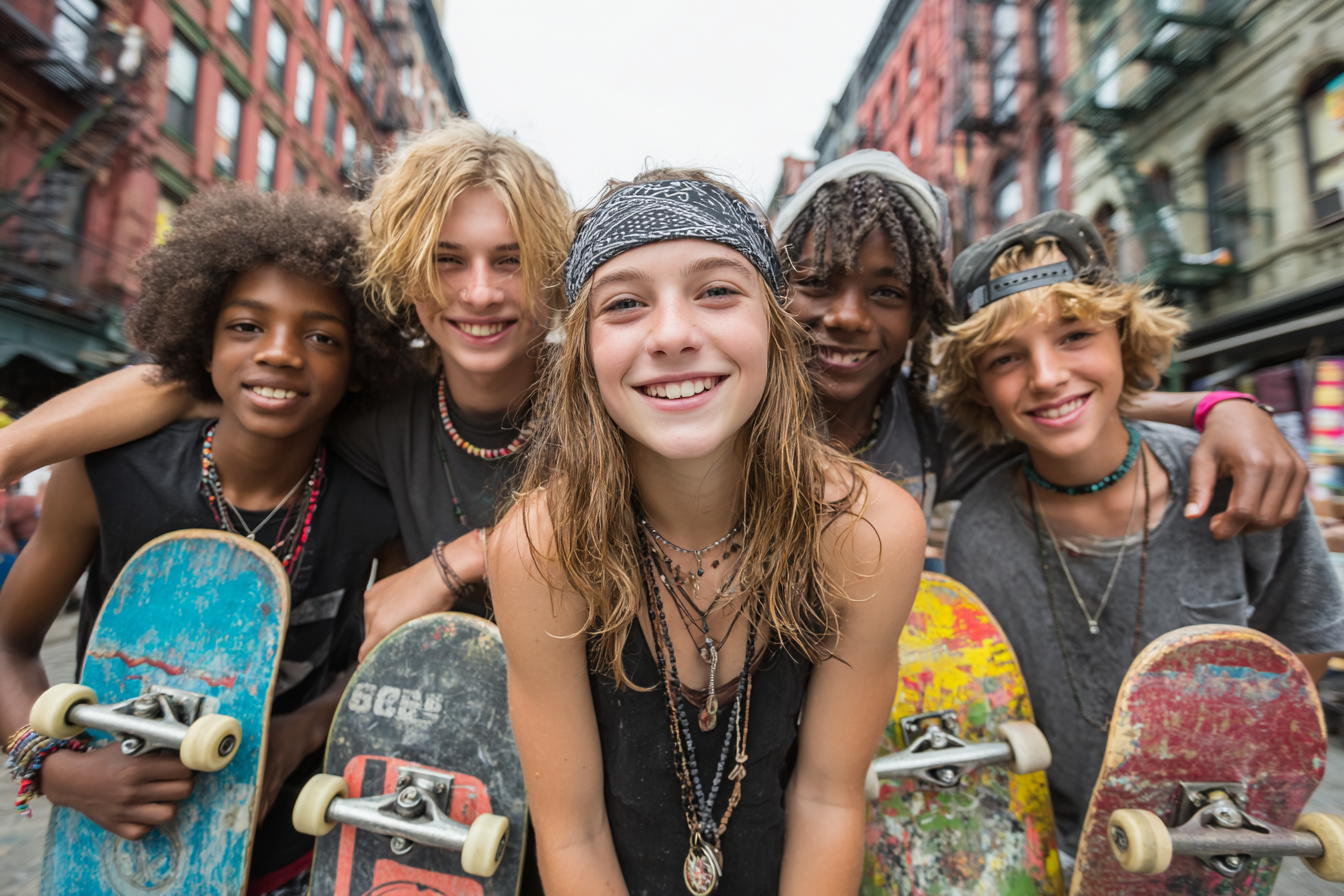Skateboarding is a vibrant, dynamic activity that has grown beyond mere sport to become a rich cultural movement with deep roots across the globe. Despite its worldwide appeal, skateboarding culture is often clouded by misunderstandings and stereotypes perpetuated by media and popular assumptions. These myths can overshadow the true nature of the skateboarding community, which is built on values like creativity, inclusivity, and personal growth. Let’s dive into some of the most common myths about skateboarding culture and reveal the reality behind this influential and inspiring culture.
Myth 1: Skateboarders Are Rebellious Troublemakers
One of the most persistent stereotypes is that skateboarders are rebellious troublemakers who defy authority and cause problems in their communities. This image is frequently reinforced by movies, TV shows, and news outlets that highlight conflicts between skateboarders and property owners or law enforcement. While skateboarding, like any subculture, has its rebellious edge, this characterization only captures a small and misleading part of the story.
In reality, most skateboarders are deeply respectful of their surroundings and other people. Many communities and cities have embraced skateboarding as a positive activity and have even built skate parks and designated areas to support the sport. Skateboarders often advocate for public spaces that promote safe and responsible skating, emphasizing respect for both public and private property. Far from being troublemakers, many skateboarders are dedicated to fostering a positive influence on their communities by promoting healthy lifestyles, creativity, and social connection.
Myth 2: Skateboarding Culture Is Exclusive and Closed Off
Another common myth suggests that skateboarding culture is cliquey and exclusive, accessible only to a certain type of person — often young, male, and fitting a particular style or image. This stereotype paints a picture of a community that is unwelcoming and difficult for newcomers or outsiders to join.
The truth is quite different. Skateboarding culture is one of the most inclusive and welcoming communities you can find. Skaters come from diverse backgrounds, ages, genders, and cultures, all united by a shared passion for the sport. Many skateboarding groups actively encourage new participants, regardless of skill level or background, creating an environment where everyone can learn, share, and grow together. The culture thrives on collaboration and mutual support, often breaking down societal barriers through shared experiences and values.
Myth 3: Skateboarding Is Only About Style, Not Skill
It’s easy to assume that skateboarding is mainly about looking cool or pulling off stylish tricks for show. Pop culture sometimes focuses heavily on the flashy elements of skateboarding, neglecting the immense technical skill, practice, and dedication required to excel in the sport.
Skateboarding demands a high level of physical ability, balance, coordination, and mental focus. Whether mastering basic movements or complex tricks, skateboarders spend hours honing their craft. The culture respects and celebrates both style and skill equally — understanding that style is an expression of individuality built upon a solid foundation of discipline and expertise. It’s this fusion of creativity and technical prowess that makes skateboarding uniquely challenging and rewarding.
Realities of Inclusivity, Creativity, and Community Support
Beyond debunking myths, it’s important to highlight the positive realities that make skateboarding culture so special. Skateboarding is inherently a creative outlet, encouraging individuals to develop their own personal style and approach. The community supports experimentation, innovation, and artistic expression, often blending skating with other art forms such as music, graffiti, and fashion.
Inclusivity is central to the skateboarding ethos. From grassroots programs introducing skateboarding to underrepresented youth, to organizations promoting gender diversity within the sport, the culture actively challenges traditional norms and opens doors for everyone. Skateboarding events and contests often emphasize sportsmanship and camaraderie, making the culture welcoming and supportive.
Moreover, skateboarding communities frequently contribute positively to their neighborhoods through volunteer efforts, mentoring, and partnerships with local government to create better public spaces. These actions demonstrate the values of responsibility and collective progress ingrained within the skateboarding spirit.
How Skateboarding Culture Promotes Positivity and Growth
Skateboarding is more than a pastime; it’s a catalyst for personal development and empowerment. The challenges and setbacks faced while learning new tricks teach perseverance and resilience. Skateboarders learn to overcome fear, failure, and self-doubt, gaining confidence along the way.
Skateboarding also builds a strong sense of community and belonging. Skaters often describe their peers as like family, providing encouragement, friendship, and mentorship. This network of support not only helps individuals improve their skating but also fosters emotional well-being.
Additionally, skateboarding promotes inclusivity in a world that can sometimes be divisive. Many skateboarders cherish the diversity within their ranks and the unifying power of their shared passion. Through skateboarding, people find common ground regardless of cultural or social differences.
Appreciating the Real Spirit of Skateboarding
Far from the myths and misconceptions, skateboarding culture is a rich and diverse community defined by creativity, inclusivity, and positive values. It’s a space where individuals can develop their skills, express themselves, and connect with others in meaningful ways. Whether it’s through the technical mastery of complex tricks or the supportive atmosphere at a local skatepark, skateboarding continues to inspire and empower countless people around the world.
Understanding and appreciating the true essence of skateboarding culture helps dismantle stereotypes and invites more people to experience all the joy and opportunity it offers. So next time you see a skateboarder, remember that you’re witnessing a vibrant culture rooted in respect, innovation, and growth — a culture that welcomes everyone with open arms.







